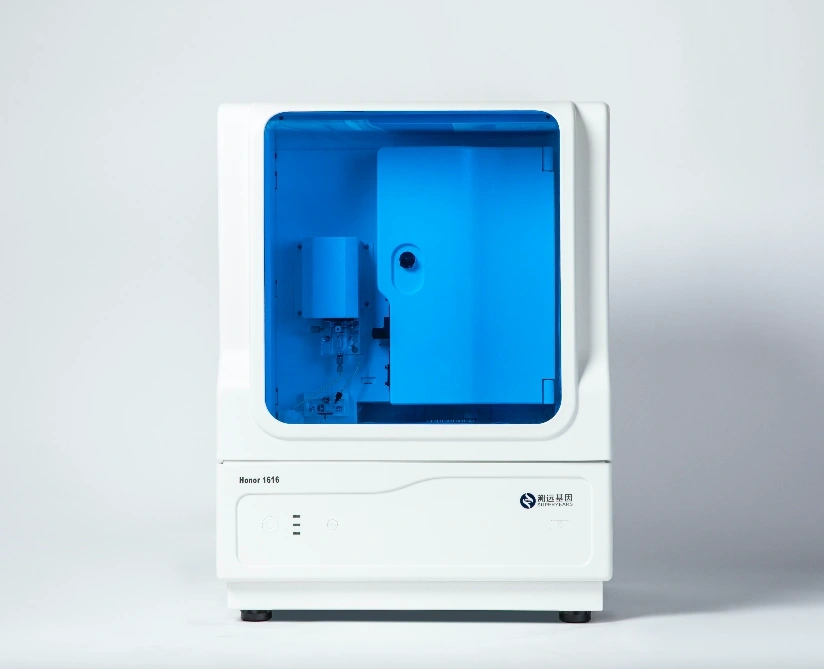The usage of a Sanger sequencing DNA analyzer
November 16, 2023
Sanger Sequecing Instrument Display

The usage of a Sanger Sequecing Dna Analyzer involves several key steps and considerations:
Sample Preparation: The first step typically involves sample preparation, which may include DNA extraction from the biological material of interest (e.g., blood, tissue, cultured cells). The extracted DNA is then purified and quantified to ensure the presence of an adequate amount for sequencing.
Primer Design: Sequencing primers are designed to anneal to the specific DNA region of interest. The primers initiate the DNA synthesis process during the sequencing reaction.
PCR Amplification: In some cases, an initial PCR amplification step may be required to increase the amount of target DNA region before sequencing. This step can be beneficial when working with limited DNA samples.
Sequencing Reaction: The prepared DNA samples are subjected to the Sanger sequencing reaction, where the DNA is sequenced using chain-terminating dideoxynucleotides (ddNTPs) and DNA polymerase. This process generates a population of DNA fragments of varying lengths, each terminating with a fluorescently labeled ddNTP.
Electrophoresis: The sequenced DNA fragments are then separated by size and detected using capillary electrophoresis, which sorts the fragments based on their length as they migrate through a polymer-filled capillary under an electric field. The fluorescent labels allow for the detection and recording of the sequencing results.
Data Analysis: The resulting sequencing data, typically in the form of a chromatogram, is then analyzed using specialized software to interpret the sequence information. This may involve base calling to determine the sequence of nucleotides and aligning the obtained sequence with a reference sequence to identify any variations or mutations.
Validation and Interpretation: The sequenced DNA data is validated for accuracy, and the obtained sequence information is interpreted to reveal genetic variations, mutations, or other relevant genetic information.
Applications: The sequence data can be used for various applications, including genetic and genomic research, disease diagnosis, forensic analysis, paternity testing, and more.
Maintenance and Quality Control: Regular maintenance of the Sanger Sequencing Method instrument is essential for ensuring reliable results. Quality control measures, such as running controls and standards alongside samples, are employed to verify the performance and accuracy of the sequencing process.
Training and Support: Users of the Sanger sequencing DNA analyzer may undergo training to operate the instrument and interpret sequencing data. Access to technical support and resources for troubleshooting is also important for efficient usage.
By following these steps and considerations, users can effectively utilize a Sanger sequencing DNA analyzer for a wide range of genetic and genomic applications.






